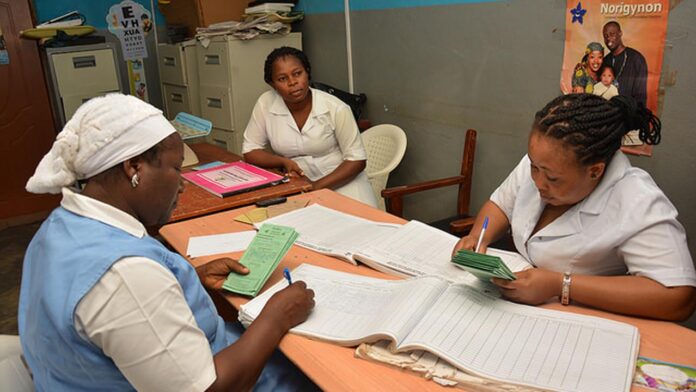The Covid-19 emergency has focused minds on the urgent need for improved healthcare across Africa, aligning unprecedented opportunity for positive social impact with competitive returns.
In Nigeria, Africa’s biggest economy at $495 billion, public spending on healthcare amounts to just 3.75 per cent of Gross Domestic Product (GDP), compared with 4.8 per cent in Kenya, 8.11 per cent in South Africa and 13.42 per cent in Sierra Leone.
Outside of the continent, Brazil spends 9.47 per cent and the United States 17 per cent, based on latest available figures from the World Bank.
As a consequence of under-investment, bringing Nigeria in line with the worldwide average of 2.7 beds per thousand people would require 386,000 additional beds and entail a massive $82 billion investment in healthcare real estate assets, according to Knight Frank’s Healthcare Consulting Team.
The country needs an additional 4,000 beds and an investment of $870 million just to keep up with its 2019 bed ratio, given population growth. With 206m people, Nigeria’s population is forecast by the United Nations to almost double by 2050. This would make it the world’s third most populous country after India and China and render the current healthcare trajectory unsustainable.
At barely 4.5 per cent of the Nigerian government’s budget, expenditure on health is significantly below the 15 per cent benchmark set by the African Union in 2001, according to the World Bank.
The country ranks 56th out of 60 countries globally surveyed by the Economist Intelligence Unit for ease of citizen access to quality healthcare services.[4] Even Nigeria’s elites struggle to access adequate healthcare at home.
Abba Kyari, President Buhari’s chief of staff, died age 67 in April from coronavirus, while Abiola Ajimobi, the former Governor of Oyo state, died age 71 of underlying health conditions made worse by Covid-19 in June. Nigeria’s capacity for testing for coronavirus has been woefully inadequate. Nigeria had tested around 0.2 per cent of its population compared with six per cent tested in South Africa, as of September 1.
Even before coronavirus, interest in African healthcare assets had been growing. International Finance Corporation, part of the World Bank, and the biggest investor in African private healthcare, teamed up with the Investment Fund for Health in Africa-II, or IFHA-II, in late 2019 to launch a $115m company to acquire healthcare service businesses in eastern and southern Africa. Backers of IFHA include European development finance organisations, such as Swedfund, along with the likes of Pfizer and Stichting Social Investor Foundation for Africa (SIFA’s contributors include AEGON, Heineken, Shell, and Unilever).
Nigeria-based Flying Doctors Healthcare Investment Co., which operates an air ambulance service and has been rapidly building mobile testing centres for COVID-19, has invested $200 million in healthcare technology companies and plans to set up a $1 billion fund for further investment in healthcare and wellness across Africa.
Hafeez Giwa, managing partner at HC Capital Properties, a west and central African real estate investment and development company that has started to invest in healthcare assets in Nigeria, says: “There is a very compelling opportunity for the development of world-class healthcare facilities across Africa, but especially Nigeria. Most of the public hospitals here were constructed over 40 years ago and only a handful have received any investment since then.”



